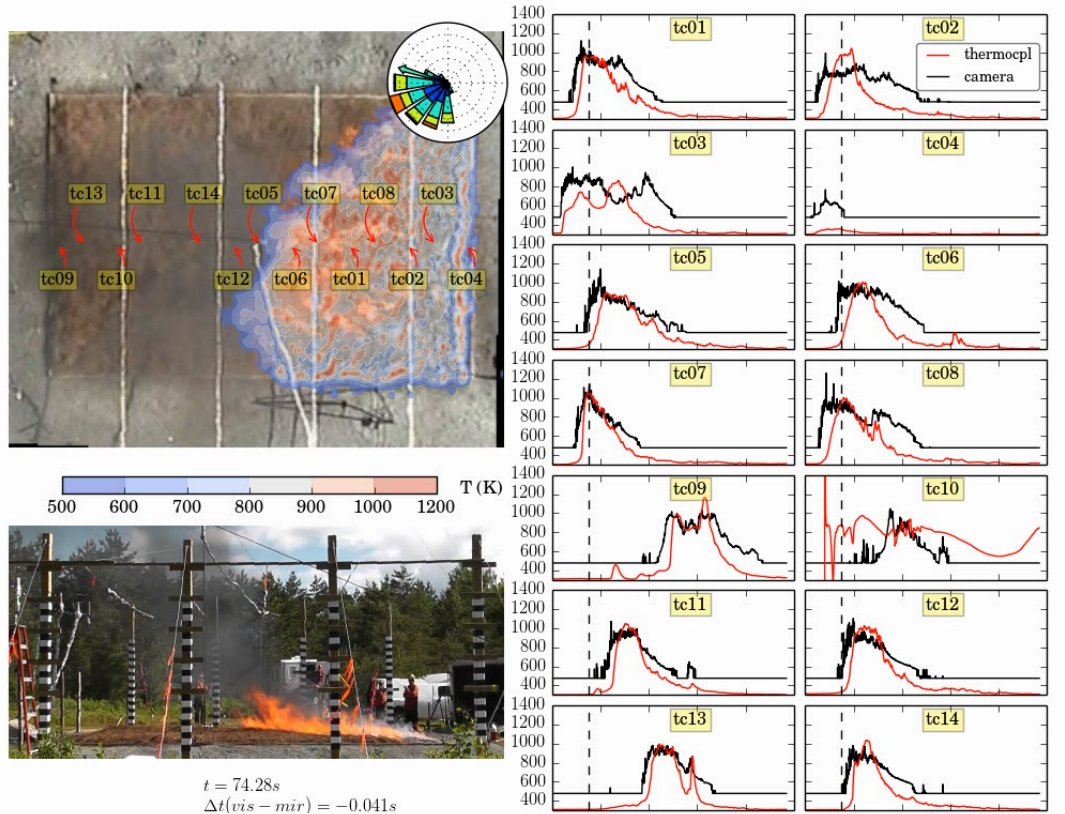
Premise: Despite the existence of numerous historical experimental dataset, experimental burning remains a critical component of wildfire research. With the acceleration of new technologies, modeling techniques and questions to be answered, the need for tailored experiments remains ever present and arguably more necessary than ever.
Rationale: New developments in wildland fire modeling aim to better simulate fire front complex geometry when predicting its spread over the landscape during operational monitoring support. For example, coupled fire-atmosphere modeling systems can now simulate simultaneously the fire front spread and the induced plume, therefore including effects from fire-induced convection in the fire front propagation. With this same objective, new data assimilation algorithms are now developed to improve fire front position model prediction based on available observations. To help validate those developments, landscape-scale observations of experimental fire are crucial.
Objectives:
This workshop proposes to capture the current state of the art in monitoring experimental fires. A particular interest is placed on small to moderate sized experimental fires that can be easily organized and use to collect data at relatively low cost and high spatial and temporal resolution.
The workshop will be summarized by writing a review article with all participants based on the current measuring capabilities and objectives to illustrate the unique value of small scale fires in the larger context of wildfire research.
Organization: A hybrid organization is planned, both in person and on line. Number of participant to be determined.
Date: Wed 28 - Fri 30th of September 2022. Meeting up in the afternoon on Wed. Wrap up midday on Friday. Detailed agenda is here.
Location: Campus Besos, Universitat Politècnica De Catalunya (UPC), Barcelona, Spain. See location here.
A list of potential subjects:
- Fuel Load: Lidar, structure from motion
- Fuel segmentation.
- Thermal Image acquisition: camera, drone, …
- Image processing: Orthorectification, Segmentation
- Plume dynamics: Radar, Sonar,
- Fire Behavior metrics, analysis and application.
- Application to Simulation of landscape scale fire experiment
- Data Management: presentation, repository, ..
- Prescribed burn program planning
- AI development based on experimental fire data.
List of Attendees:
- in person: Collin McFayden, Nancy French, Martin Wooster, Victor Penot, Miguel Valero, Ronan Paugam
- remotely: Alex Filkov, Ruddy Mell, Joe Paki, Albert Simeoni, Daniel Thompson, Ginny Marshall, Melanie Rochoux, Joshua Johnston.
- following the discussion: Andy Hudak, Jean-Baptiste Filippi, Mark Finney, Craig Clements, Marc Castellnou, Domingos Viegas.